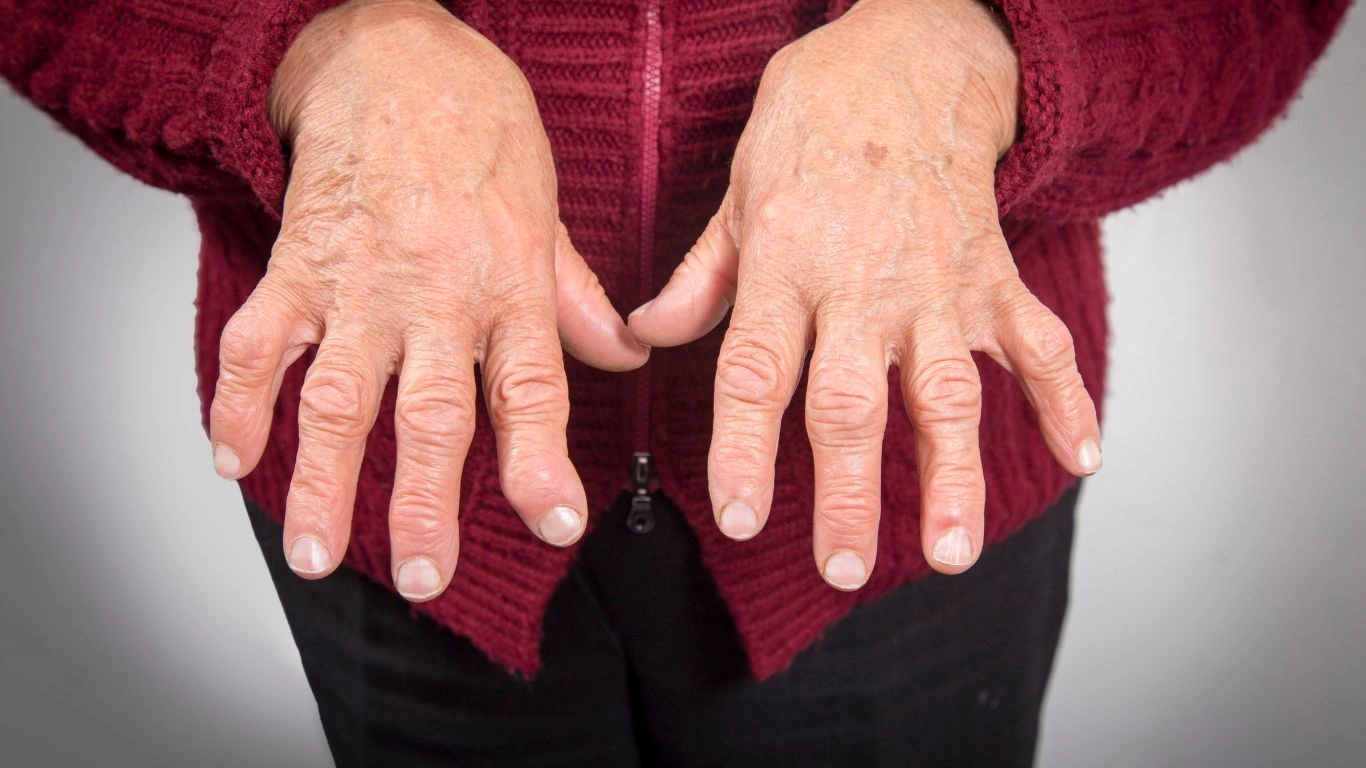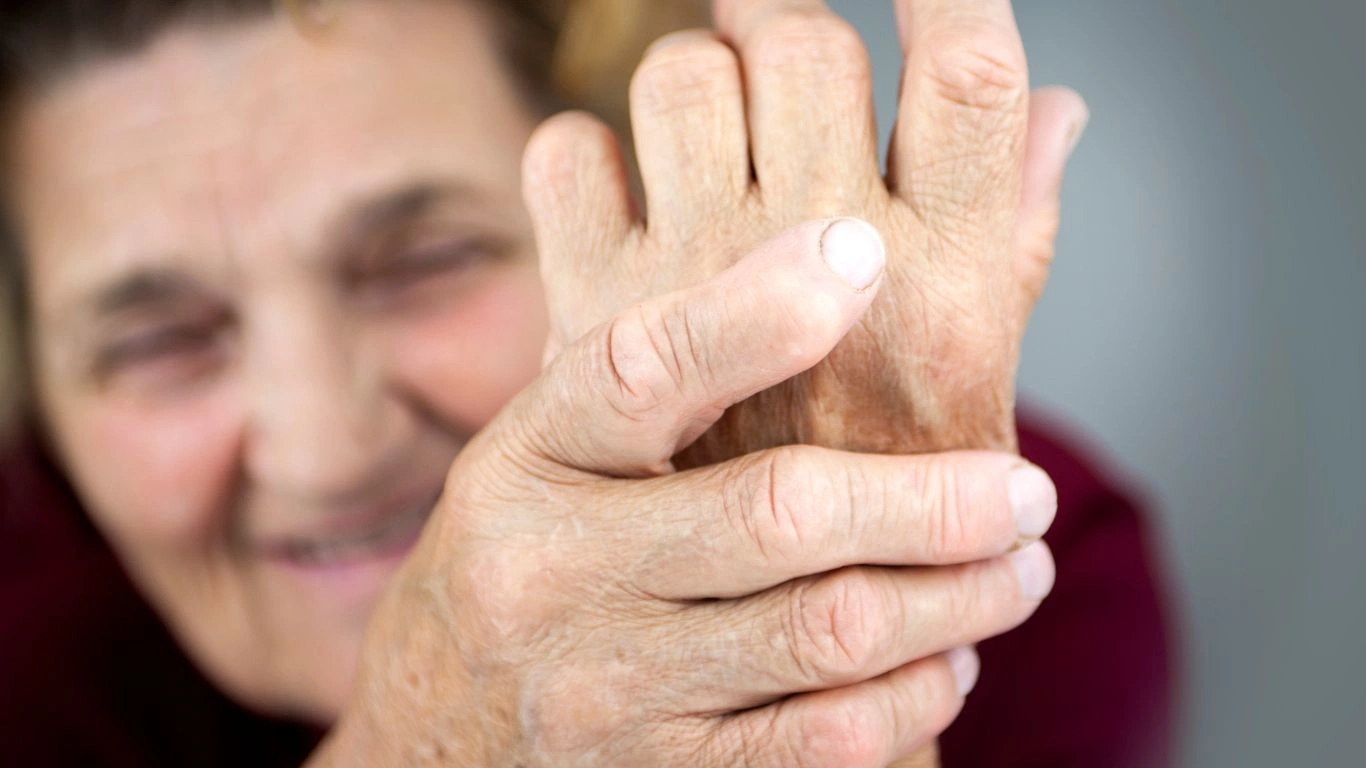Can Rheumatoid Arthritis Cause Anxiety & Depression?
Can rheumatoid arthritis cause anxiety and depression? If you’ve ever dealt with the relentless pain and fatigue that RA brings, you probably already know the answer. As a Rheumatology Nurse Practitioner, I’ve had countless conversations with patients who felt like they were fighting a battle on two fronts—one against their joints and another against the overwhelming emotional toll that comes with a chronic illness. It’s a topic that doesn’t always get enough attention, but it should.
We tend to focus on the physical symptoms—swollen fingers, stiff knees, aching wrists—but what about the mental weight of RA? The unpredictability, the limitations, the frustration of not being able to do what you once did effortlessly… it all takes a toll. And while anxiety and depression aren’t listed under the diagnostic criteria for rheumatoid arthritis, trust me when I say, they’re often part of the package.
How Rheumatoid Arthritis Impacts Mental Health
 Rheumatoid arthritis is more than just joint pain—it’s a systemic disease that can affect every aspect of your life, including your mental well-being. Living with chronic pain and fatigue day after day can lead to feelings of hopelessness, frustration, and even isolation.
Rheumatoid arthritis is more than just joint pain—it’s a systemic disease that can affect every aspect of your life, including your mental well-being. Living with chronic pain and fatigue day after day can lead to feelings of hopelessness, frustration, and even isolation.
The Chronic Pain-Depression Connection
There’s a strong link between chronic pain and depression, and it makes perfect sense when you think about it. When you’re constantly hurting, it’s hard to stay positive. Pain disrupts sleep, makes everyday tasks feel impossible, and limits your ability to do the things that bring you joy. Over time, that can chip away at your mental health, leading to anxiety, depression, or both. I’ve seen it firsthand with patients who tell me, “I feel like I’ve lost myself,” or “I don’t even recognize my life anymore.” They’re not exaggerating. RA changes how you move, how you feel, and even how you think about yourself. And when you add the unpredictable nature of flares, it’s easy to see why anxiety becomes a constant companion for so many.
Inflammation and Mood: The Hidden Link
What many people don’t realize is that inflammation—the root cause of RA—may also play a direct role in anxiety and depression. Studies suggest that elevated inflammatory markers like cytokines can impact brain chemistry, leading to changes in mood and mental function. So, it’s not just the *experience* of RA that affects mental health—it could be the disease itself.
Why Anxiety and Depression in RA Are Often Overlooked
 Despite how common it is, mental health struggles in people with RA are often brushed aside. Why? There are a few reasons:
Despite how common it is, mental health struggles in people with RA are often brushed aside. Why? There are a few reasons:
- Focus on Physical Symptoms: Doctors and even patients themselves tend to prioritize joint pain, swelling, and mobility issues over mental health concerns.
- Stigma Around Mental Health: Many people hesitate to talk about anxiety and depression, fearing judgment or dismissal.
- The “Just Tough It Out” Mentality: People with RA often push through pain without acknowledging the emotional toll.
The Importance of Acknowledging Mental Health in RA
The truth is, untreated anxiety and depression can make RA symptoms worse. Stress can trigger inflammation, pain perception can increase, and overall quality of life can plummet. This is why addressing mental health should be just as important as managing joint pain. Many of my patients don’t even realize how much their mental state affects their physical symptoms until we start discussing it. I’ve had people break down in tears in my office, saying they thought they were just “being weak” when in reality, they were dealing with something very real and very treatable.
Breaking the Cycle: How to Manage Anxiety and Depression with RA
 Living with rheumatoid arthritis already comes with enough challenges—adding anxiety and depression into the mix can make it feel downright impossible to cope. But here’s the good news: there are ways to break the cycle. Over the years, I’ve worked with many patients who’ve found strategies that helped them reclaim their mental well-being, even in the face of RA’s unpredictability.
Living with rheumatoid arthritis already comes with enough challenges—adding anxiety and depression into the mix can make it feel downright impossible to cope. But here’s the good news: there are ways to break the cycle. Over the years, I’ve worked with many patients who’ve found strategies that helped them reclaim their mental well-being, even in the face of RA’s unpredictability.
Prioritizing Mental Health in Your RA Treatment Plan
Too often, mental health takes a backseat in RA treatment. But the truth is, managing anxiety and depression should be just as much a priority as reducing inflammation and protecting joints. Here’s where to start:
- Talk to Your Healthcare Provider: If you’re struggling with your mental health, bring it up during your next appointment. Don’t wait for your doctor to ask—you may need to advocate for yourself.
- Consider Therapy: Cognitive behavioral therapy (CBT) has been proven to help people with chronic illnesses manage anxiety and depression.
- Medications Can Help: Sometimes, antidepressants or anti-anxiety medications are necessary, especially when symptoms are severe. There’s no shame in needing them.
I’ve seen patients who were hesitant to take this step, fearing it meant they were “giving in” or that medication would change them. But the reality? Getting the right treatment can mean the difference between suffering in silence and actually enjoying life again.
The Role of Exercise and Movement in Mental Health
 I get it—when your joints hurt, the last thing you want to do is move. But movement is one of the most powerful tools for managing both RA symptoms and mental health.
I get it—when your joints hurt, the last thing you want to do is move. But movement is one of the most powerful tools for managing both RA symptoms and mental health.
How Exercise Helps Mood and Pain
Exercise releases endorphins, which are your body’s natural mood boosters. It also helps reduce inflammation, improves sleep, and gives you a sense of control over your body. The key is finding the right kind of movement for you. Some options that tend to work well for people with RA include:
- Swimming or Water Aerobics: The buoyancy of water takes pressure off joints while allowing for movement.
- Gentle Yoga: Helps with flexibility, relaxation, and mindfulness.
- Walking: A simple, low-impact way to stay active without stressing joints too much.
One of my patients, a retired schoolteacher, was convinced that exercise would only make her pain worse. She resisted for months. But once she started doing chair yoga and taking short walks, her energy levels improved, and—most surprisingly to her—so did her mood. “I feel like myself again,” she told me. That’s the power of movement.
Nutrition: Fueling Your Body and Mind
 What you eat plays a significant role in both physical and mental health. Some foods can increase inflammation and worsen symptoms, while others have been shown to boost mood and brain function.
What you eat plays a significant role in both physical and mental health. Some foods can increase inflammation and worsen symptoms, while others have been shown to boost mood and brain function.
Foods That Can Help
A well-balanced diet rich in anti-inflammatory foods can make a noticeable difference. Consider adding more of these to your meals:
- Fatty Fish: Salmon, mackerel, and sardines are loaded with omega-3s, which help fight inflammation and support brain health.
- Leafy Greens: Spinach, kale, and Swiss chard contain essential vitamins and minerals that support mood stability.
- Turmeric: This powerful anti-inflammatory spice has been linked to lower rates of depression.
- Dark Chocolate: Yes, you read that right! Dark chocolate in moderation can reduce stress hormones and boost serotonin.
Foods to Avoid
On the flip side, certain foods can make RA symptoms and mental health struggles worse:
- Processed Sugars: These can cause inflammation spikes, leading to more pain and mood swings.
- Refined Carbs: White bread, pasta, and pastries can lead to energy crashes and worsen depression symptoms.
- Excessive Caffeine: While a little coffee is fine, too much can increase anxiety levels.
One thing I always tell my patients: small changes add up. You don’t have to overhaul your diet overnight. Start by swapping out one inflammatory food at a time and replacing it with a healthier option.
The Importance of Support: Building a Strong RA Support System
 Having a solid support system in place is critical when you’re dealing with both the physical and emotional challenges of rheumatoid arthritis. Whether it’s family, friends, or fellow RA warriors, the people you lean on can make a world of difference in managing both your symptoms and your mental health.
Having a solid support system in place is critical when you’re dealing with both the physical and emotional challenges of rheumatoid arthritis. Whether it’s family, friends, or fellow RA warriors, the people you lean on can make a world of difference in managing both your symptoms and your mental health.
Why Support is Essential for Your Well-being
As a nurse practitioner, I’ve seen patients flourish when they feel supported, and I’ve seen others struggle when they’re isolated or feel misunderstood. RA is a difficult disease to navigate, and having people around you who understand your pain—both physical and emotional—can significantly reduce the burden. But it’s not just about having someone to talk to; it’s about having people who can help you stay motivated, lift your spirits, and even assist with practical aspects of daily life.
- Emotional Support: Talking about your struggles with someone who listens can make a huge difference. It helps reduce stress and fosters a sense of connection.
- Practical Support: Whether it’s helping with housework during a flare or offering transportation to medical appointments, practical support is key to managing RA’s limitations.
- Encouragement: Your support system can help you stay on track with treatments, exercise, and other healthy habits, even when you’re feeling down.
I often tell my patients that building a strong support system isn’t just nice—it’s essential. I know how easy it can be to feel like you’re in this alone, but trust me when I say that leaning on others can lighten the emotional load.
Mindfulness and Stress Reduction for RA Patients
 Mindfulness and stress reduction techniques are often overlooked in the treatment of rheumatoid arthritis, yet they can be some of the most powerful tools in improving mental health.
Mindfulness and stress reduction techniques are often overlooked in the treatment of rheumatoid arthritis, yet they can be some of the most powerful tools in improving mental health.
Why Mindfulness Matters in Managing RA
Mindfulness is about being present in the moment without judgment, which is incredibly helpful when you’re dealing with the unpredictable nature of RA. If you’re constantly worrying about future flares or lamenting past struggles, it’s easy to feel overwhelmed. But practicing mindfulness can help you break that cycle by teaching you to focus on the here and now. This doesn’t mean ignoring your symptoms or pretending everything is fine—it just means approaching each moment with a calm, balanced mindset.
- Reducing Stress: Mindfulness helps calm your nervous system, which is essential for reducing inflammation and managing pain.
- Improving Emotional Resilience: By accepting your situation without judgment, you can bounce back from emotional setbacks faster.
- Better Pain Management: Studies show that mindfulness can help decrease the perception of pain, making it easier to manage symptoms.
When my patients begin practicing mindfulness, they often tell me they feel more in control of their RA, even if the disease itself doesn’t change. One of my patients, a young mother, shared that mindfulness meditation helped her manage stress, making her flares less intense and easier to handle.
How to Get Started with Mindfulness
You don’t need to be a meditation expert to reap the benefits of mindfulness. In fact, it’s easier than you might think. Start with these simple techniques:
- Breathing Exercises: Take a few minutes each day to focus on your breath. Inhale slowly through your nose, hold for a few seconds, and then exhale slowly. Repeat for 5-10 minutes.
- Body Scan Meditation: Sit or lie down in a comfortable position. Slowly scan your body from head to toe, noticing any areas of tension, and consciously relax each part of your body.
- Mindful Walking: Take a walk and focus on each step you take. Notice the sensation of your feet touching the ground, the sounds around you, and the rhythm of your breath.
You don’t need to set aside an hour to practice mindfulness. Even five minutes a day can have a positive impact on your mood and overall health.
Building a Holistic RA Treatment Plan
A holistic approach to rheumatoid arthritis means addressing not just the physical symptoms, but also the emotional, mental, and lifestyle factors that affect your well-being. By combining medical treatment with self-care practices like mindfulness, nutrition, and physical activity, you can take a more comprehensive approach to managing your RA and improving your quality of life.
Integrating All Aspects of Care
As a nurse practitioner, I’ve always believed in treating the whole person, not just the disease. This approach has shown me that the best results come from a combination of treatments, including:
- Medications: Disease-modifying anti-rheumatic drugs (DMARDs) are essential for managing RA, but they work best when paired with lifestyle adjustments.
- Therapy: Regular sessions with a physical therapist, psychologist, or counselor can help you manage both the physical and mental toll of RA.
- Self-care: Nutrition, exercise, stress management, and adequate sleep are crucial pieces of the puzzle in managing RA effectively.
It’s About Progress, Not Perfection
I always remind my patients: living with RA doesn’t mean living in constant suffering. It’s about finding strategies that work for you and adapting as you go. You won’t always feel your best, and that’s okay. It’s okay to have bad days and struggle with your emotions—it’s part of the journey. What matters is that you’re taking steps to care for your body and mind as best as you can.
References
Disclaimer
This article is for informational purposes only and is not intended to substitute for professional medical advice, diagnosis, or treatment. Always seek the advice of your physician or other qualified health provider with any questions you may have regarding a medical condition.

Tarra Nugroho is a dedicated Nurse Practitioner with a strong foundation in family and preventive care. She brings both compassion and clinical expertise to her practice, focusing on patient-centered care and health education. As a contributor to Healthusias.com, Tarra translates medical knowledge into clear, empowering articles on topics like women’s health, chronic disease management, and lifestyle medicine. Her mission is simple: help people feel seen, heard, and informed—both in the clinic and through the content she creates. When she’s not caring for patients, Tarra enjoys weekend hikes, plant-based cooking, and curling up with a good health podcast.







